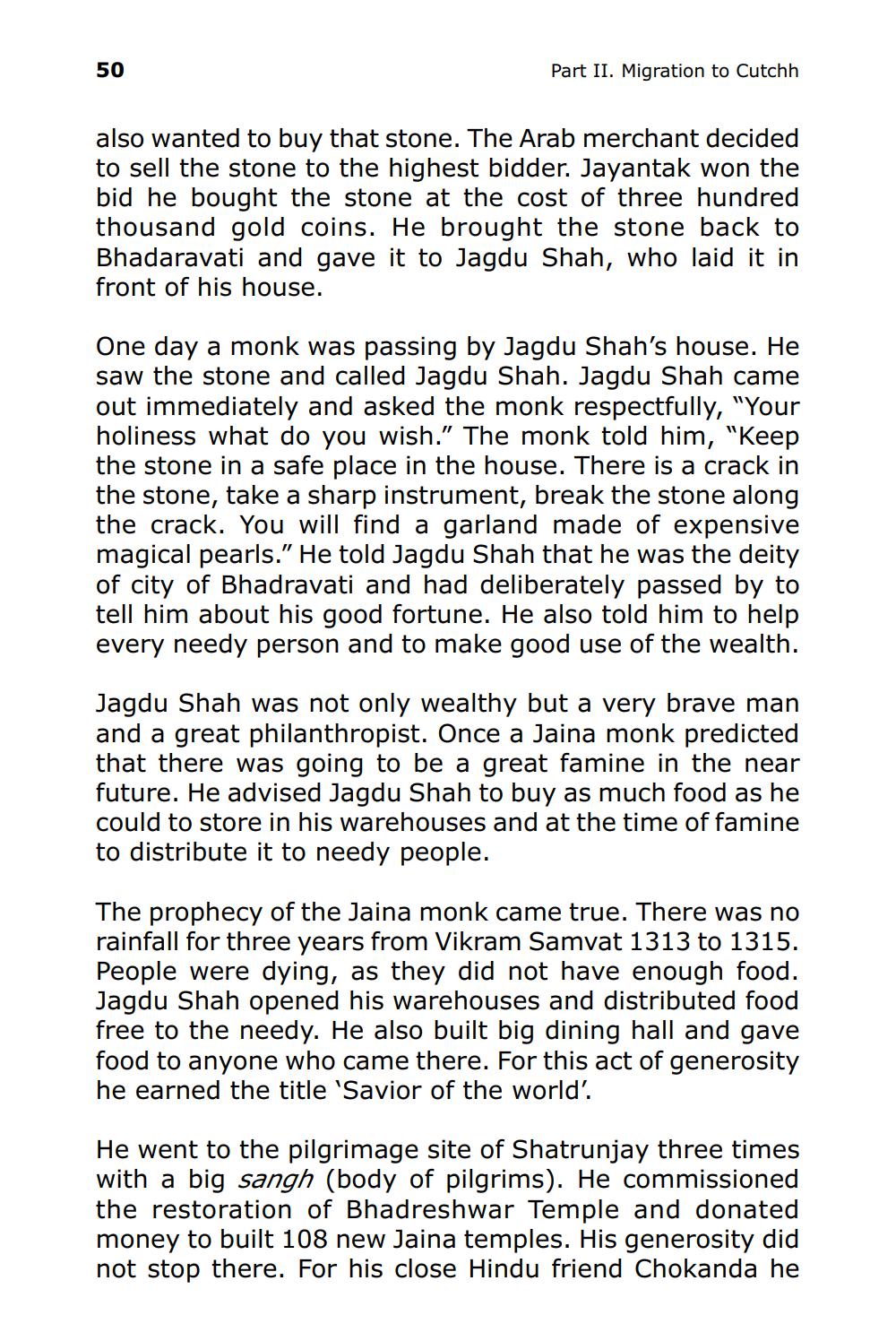________________
50
Part II. Migration to Cutchh
also wanted to buy that stone. The Arab merchant decided to sell the stone to the highest bidder. Jayantak won the bid he bought the stone at the cost of three hundred thousand gold coins. He brought the stone back to Bhadaravati and gave it to Jagdu Shah, who laid it in front of his house.
One day a monk was passing by Jagdu Shah's house. He saw the stone and called Jagdu Shah. Jagdu Shah came out immediately and asked the monk respectfully, "Your holiness what do you wish." The monk told him, "Keep the stone in a safe place in the house. There is a crack in the stone, take a sharp instrument, break the stone along the crack. You will find a garland made of expensive magical pearls." He told Jagdu Shah that he was the deity of city of Bhadravati and had deliberately passed by to tell him about his good fortune. He also told him to help every needy person and to make good use of the wealth.
Jagdu Shah was not only wealthy but a very brave man and a great philanthropist. Once a Jaina monk predicted that there was going to be a great famine in the near future. He advised Jagdu Shah to buy as much food as he could to store in his warehouses and at the time of famine to distribute it to needy people.
The prophecy of the Jaina monk came true. There was no rainfall for three years from Vikram Samvat 1313 to 1315. People were dying, as they did not have enough food. Jagdu Shah opened his warehouses and distributed food free to the needy. He also built big dining hall and gave food to anyone who came there. For this act of generosity he earned the title 'Savior of the world'.
He went to the pilgrimage site of Shatrunjay three times with a big sangh (body of pilgrims). He commissioned the restoration of Bhadreshwar Temple and donated money to built 108 new Jaina temples. His generosity did not stop there. For his close Hindu friend Chokanda he




